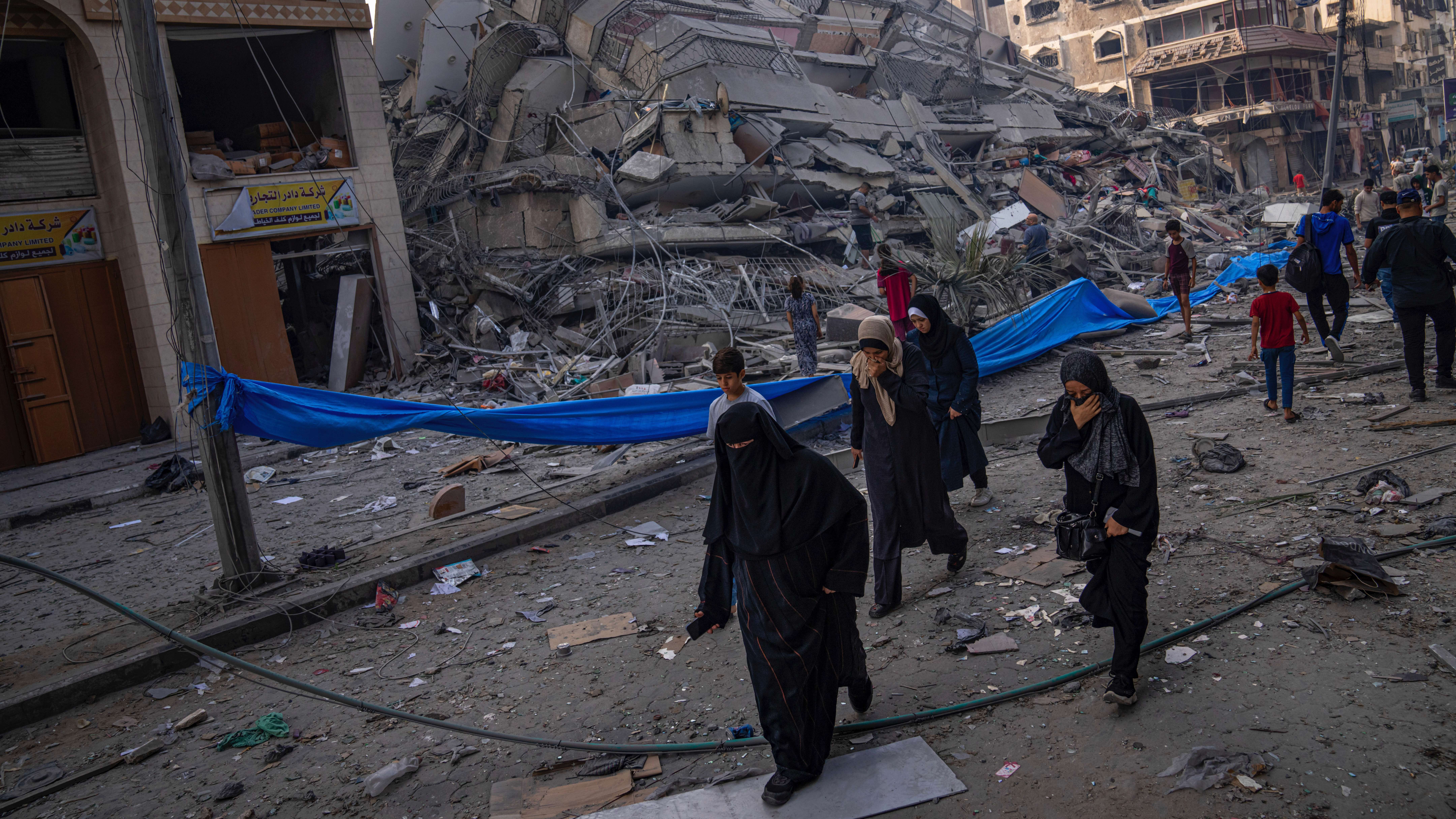Israel’s military said Tuesday that it had regained effective control over its south and the border with the Gaza Strip four days after Hamas fighters stormed into the country and brought gunbattles to its streets for the first time in decades.
The declaration came as the Israeli Defense Forces sought to make good on the government’s vow to hunt down the militants and to intensify an assault on densely populated Gaza, the Palestinian territory ruled by Hamas and home to 2 million people.
The conflict has already killed hundreds on both sides. The Israeli military said more than 1,000 people have died in Israel since Saturday’s incursion. In Gaza and the West Bank, 830 people have been killed, according to authorities there.
In Israel and beyond, the families of more than 150 people kidnapped by Hamas and other militant groups feared for the lives of their loved ones. The armed wing of Hamas has warned it will kill one of the hostages every time Israel’s military bombs civilian targets in Gaza without warning.
The war between Israel and Hamas is already reverberating around the globe. In Eastern Europe, some are asking whether the upheaval in the Middle East will impact the war in Ukraine.
So far, Moscow’s and Kyiv’s responses to the war in Gaza have been starkly different.
In Moscow, Russian Foreign Minister Sergei Lavrov met on Monday with the head of the Arab League.
In a joint press conference, Lavrov said that the Russian Federation “condemns violence in any form, and calls on everyone to speak strongly against any military action.”
However, Lavrov was also quick to take the opportunity to blame the United States. He referred to the “destructive politics of the United States.”
He said that the “Americans are trying to monopolize the mediation process” between Israelis and Palestinians — and implied that the US is, in part, responsible for the current escalation.
Nikolay Kozhanov, an associate professor at Gulf Studies Center at Qatar University, said, “Russia is trying to use this conflict and the situation around it as a cheap way to project power. It’s trying to exploit the situation for the Russian benefit, by presenting itself as a force which is able to talk to all camps in this conflict.”
According to Kozhanov, Russia has developed strong working relationships with players throughout the Middle East. And that includes Israeli and Palestinian stakeholders.
“In other words, choosing sides in this conflict is not in Russia’s interests.”
Kozhanov said that historically, Russia tends to speak up in support of the Palestinian camp to shore up relations with Arab states.
But it’s a balancing act, where Russia also tries to keep up steady relations with Israel.
However, some have accused Russia of benefiting from regional instability.
“Some Russian officials are happy about the fact that now there is another conflict that is diverting attention from what Russia is doing on the battlefields in Ukraine.”
But Kozhanov said that despite the sentiment, this opinion is only expressed on political talk shows, or on social media, and not through official channels.
“The instability, in general, allows Russia to play the role of the mediator; it creates certain opportunities that are usually nonexistent during the peaceful times,” he said. “But at the same time, Russia is interested in low level, simmering instability, let’s put it this way.”
And right now, the conflict has boiled over into complete upheaval. Kozhanov said that this is when the Kremlin tends to change its position from instigator, to positioning itself as a mediator, and a partner for peace.
Ukraine, on the other hand, has taken a completely different approach. Ukrainian President Volodymyr Zelenskiy expressed his full-fledged support for Israel, saying that: “Israel has every right to defend itself, to protect itself from terror.”
Ukraine’s military also chimed in, amplifying Zelenskiy’s message.
In an ad, members of Ukraine’s armed forces say: “This attack against Israel is a crime against the civilized world,” and “every life matters, both in Israel and in Ukraine.”
Ukraine’s robust message of support for Israel comes despite Israel’s cautious approach to supporting Ukraine.
But Ukraine said its goal here is to contrast its position with the Kremlin by fully condemning Hamas, and unjustified violence, wherever it takes place.
The Associated Press contributed to this report.
The story you just read is accessible and free to all because thousands of listeners and readers contribute to our nonprofit newsroom. We go deep to bring you the human-centered international reporting that you know you can trust. To do this work and to do it well, we rely on the support of our listeners. If you appreciated our coverage this year, if there was a story that made you pause or a song that moved you, would you consider making a gift to sustain our work through 2024 and beyond?
